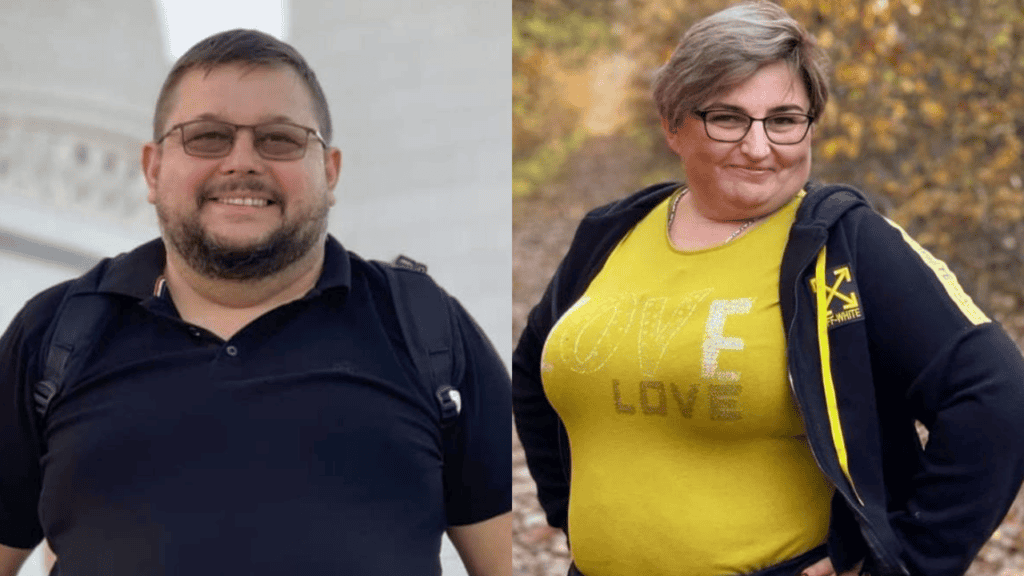

A 45-year-old detainee died of torture in the occupied part of the Kherson region
Volodymyr Zakabluk, resident of the occupied town of Kakhovka in the Kherson region, was tortured to death in custody, Centre for Investigative Journalism reported citing the man’s friends and acquaintances.
According to their information, 45-year-old Volodymyr Zakabluk was detained by the Russian occupiers in Kakhovka, Kherson region. The man was severely tortured and died of his injuries in early October 2024. The publication did not provide the date and reason for Zakabluk’s detention.
Volodymyr Zakabluk worked at the local branch of Cargill, which owns, among other things, an oil extraction plant in Kakhovka, the CIJ noted.
According to the CIJ, in February 2024, the occupiers tortured to death 59-year-old Stepan Podolchak, rector of the Orthodox Church of Ukraine in the village of Kalanchak, Skadovsk district, Kherson region.
In November 2023, 28-year-old Ruslan Rusnak from the occupied village of Hornostaivka, Kakhovka district, was tortured to death.
In January 2023, 34-year-old Serhiy Fedorenko from Nova Kakhovka died of torture in the Kakhovka Central City Hospital as the result of torture by the occupiers.
In November 2022, Anatoliy and Oleksandr Prokopchuk, father and son, were found murdered near Nova Kakhovka, tortured by the occupiers. Anatolii was a deacon of the local Church of Christians of Evangelical Faith.
Earlier, the Media Initiative for Human Rights published a story of a married couple of entrepreneurs, Tetiana and Oleh Plachkov, from occupied Melitopol, Zaporizhzhia region, who were abducted from their home by Russian FSB officers in September 2023.
According to the Plachkovs’ daughter, Liudmyla Melnykova, she had not known about her parents’ fate for six months since then. In February 2024, she learned that her 51-year-old mother was in the intensive care unit of a Melitopol hospital in a “coma of unknown origin”.
According to the doctors Melnykova cited, the woman had been kept in a coma somewhere else before being brought to the hospital, judging by the pressure sores on her body. According to Melnykova, even Tetiana Plachkova’s elderly mother was not allowed to visit her daughter in the hospital. Melnykova appealed to the International Committee of the Red Cross for help, but was told that they did not have access to the Russian-occupied territories. In May 2024, Plachkova died.

Tetiana and Oleh Plachkov, photo from the MIHR website
Liudmyla Melnykova still knows nothing about the whereabouts and condition of Oleg Plachkov. According to her, the occupiers claim that they are not holding him. Melnykova is appealing to Ukrainian and international bodies and organisations for help in finding her father.
As Occupied reported earlier, in September, at least 30 people were detained in the occupied territories for political reasons. These are only detentions reported by occupation authorities and media in four regions and Crimea. Another 29 political prisoners received “court sentences”, all of them sentenced to prison.
In its latest resolution on Ukraine, adopted on 1 October 2024, the Parliamentary Assembly of the Council of Europe drew attention to numerous violations of international humanitarian law by Russia in relation to prisoners of war and civilian prisoners.
The PACE also drew attention to the abusive conditions of detention, ill-treatment of Ukrainian prisoners of war and civilian prisoners and torture in the Russian-occupied territories of Ukraine and in Russia, including starvation, denial of medical care, verbal abuse, systematic beatings and sexual violence, as well as the lack of access to them by their families and representatives of international humanitarian organisations.
It also referred to forced labour in the occupied territories of Ukraine, “although only few direct witnesses are still alive to bear testimony, since many have died when being forced into demining operations”.
In the resolution, the Assembly, among other things, called on the International Committee of the Red Cross to “make an exception” to its confidential approach and make public the obstacles it faces in gaining access to Ukrainian prisoners.